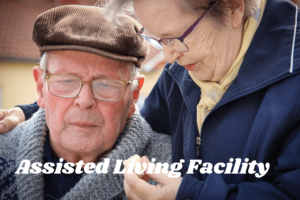Nurse Practitioner – Why Every Nurse Wants to Become an NP
Jaines
Andrades was a janitor in Baystate Medical Center in Springfield,
Massachusetts. But this daughter of a Puerto Rican parent was not ready to
settle with what she had. She worked hard, joined a nursing school and got
guidance from nurses at medical the center where she was working. Her
decade-long hard work, dedication and patience paid off and she joined the same
hospital as a nurse practitioner. Her dreams-come-true story has found a place
in the leading newspapers. At the same time, it underscores the craze for nurse
practitioner as a career.
What
is a Nurse Practitioner? Definition
The
Merriam Webster Dictionary defines nurse practitioner (NP) as a registered
nurse who has got advanced training to perform some duties and responsibilities
that were only done by physicians.
Simply
put, a nurse practitioner is a registered nurse who has obtained a master or
doctorate in nursing and received relevant training and certification.
Due
to these factors, an NP has an edge over registered nurses and they handle the
same responsibilities as a doctor. Certain states in the United States allow
them to practice independently without the supervision of a doctor.
An
NP could perform specific roles like family nurse practitioner, psychiatric
nurse practitioner and neonatal nurse practitioner among the others.
What
Do Nurse Practitioners Do? Scope of Work
A
nurse practitioner can perform a variety of duties much like a physician. An NP
can examine a patient, diagnose and prescribe medicines.
Most
states in America allow them to work independently. In some states, they
require the supervision of a physician.
Even
in the states where they are not allowed to work independently, they enjoy more
responsibilities than registered nurses.
As
it is a good career option, a large number of nurses want to become a nurse
practitioner.
Before
we proceed further, let us understand the difference between a doctor and a
nurse practitioner.
Difference
Between a Doctor and a Nurse Practitioner
As
most of the states in America allow Nurse Practitioners or NP as they are
abbreviated, to practice on their own, without the supervision of a doctor. So,
a comparison is obvious. Here, we discuss differences between a doctor and a
nurse practitioner.
Approach
There
is a difference in approach. Doctors have an in-depth knowledge of human
physiology that reflect in their decision making. The doctors are more
research-oriented while are mainly focused on healing. We are not saying that
doctors are not focused on healing or nurses don’t know much about human
physiology. But as their background differs so do their approach. To put it
simply, these professions might be different but there is a huge overlap
between them as their goal is the same that is curing patients.
Education
The
system of education of doctors and nurses are different and it reflects well in
their knowledge. To be a doctor (an MD or DO), one should be a bachelor degree
in biology, chemistry or relevant field. A doctor completes his medical degree
and gains experience through residency.
Doctors
on an average spend 11 years in education and training to become an MD or DO.
To
be an NP, one must have a bachelor degree in nursing, Besides the bachelor
degree, they should have a Masters in Nursing MSN) or Doctor in Nursing practices
(DNP).
A
nurse has to take 6 to 8 years after postsecondary to become a Nurse
Practitioner that include two years in Bachelor of Science in Nursing (BSN) and
two to four years in MSN or DNP.
Responsibilities
Apart
from qualification and experience, their responsibilities also vary a lot. A doctor has more important responsibilities
than an NP. A doctor takes a medical history, examines, diagnoses and treats a
patient. He makes a finding of the treatment, decides on diagnostic tests,
review test reports and prepares a treatment strategy. In addition, he answers
queries of the patients.
The
responsibilities of a nurse practitioner include ordering and doing and
interpreting diagnostic tests. An NP can
also treat the acute condition, prescribe medication and look after the overall
health of the patients. Counselling
patients and guiding patients and families about the illness are other
responsibilities.
Prescribing
Medicines
When
it comes to prescribing medicines, no doubt MDs and Dos can prescribe medicine
in all the 50 states and DC.
On
the other hand, NPs can also prescribe medicine in all the states and DC.
However, their level of autonomy varies from state to state. They have to go by
the law of the land. Some states require them to collaborate with physicians to
prescribe certain treatments.
Licensing
and Certification
The
licensing bodies for doctors and NPs are different. The DOs have to pass the
Comprehensive Osteopathic Medical Licensing Examination and MDs have to clear
the United States Medical Licensing Examination.
On
the other hand, NPs have different licensing bodies altogether. Getting a
registered nurse (RN) license and state NP licensure of the concerned state is
essential for them. However, licensing
and certification bodies vary a lot.
License
Renewal
Both
professions require license renewal. The doctors have to get their license
renewed every 1-3 years. While NPs have to get their state APRN renewals for
every 1-2 years.
Specializations
When
it comes to specialization, the doctors have an upper hand over NPs. Doctors
can choose from over a dozen specializations while NPs have to settle for
relatively a small number of specializations.
Salary
In
terms of salaries, doctors are better positioned than their NP counterparts. As
per the BLS data of 2017, the average salary of doctors is $208,560 annual or
$100.27/hour while the average salary of NPs is $107,480 annual or $51.68/hour.
After
a comparison of both these professions, it is time to know how to become a
nurse practitioner. Let us take a step by step approach.
Also Read
Caregiver for Elderly – How to Hire an In Home Care Service
How
to Become a Nurse Practitioner
As
a nurse practitioner is such a lucrative career option, it is in huge demand
from those who want to make a career in nursing. But becoming one requires hard
work and a systematic approach. Here we suggest ways to become an NP.
Get
a Bachelor of Science Nursing (BSN) Degree
Getting
a Bachelor in Science and Nursing (BSN) could be the first step towards
becoming a nurse practitioner. The bachelor program is of four years duration
and offered by many nursing schools across the country. This four-year program
consists of general education, nursing course, practical and internship. Here, the students should prefer doing this
course from a reputed institution, as the education received could pave the way
to a flourishing career.
Get
a Registered License
You
must have a registered nurse license to become an NP. To get this license you
must have a Bachelor in Science and Nursing (BSN) or equivalent degree. The
candidate should pass the National Council for Licensure Examination (NCLEX). The registration license varies from state to
state. Most of the states conduct a criminal background check before issuing a
license.
Doing
Specialization While Working
The
candidate should work on doing a specialization while working as a registered
nurse. There are various nursing specializations to choose from. One can choose specializations like
pediatric, mental health and gerontology among the others. While choosing a
specialization, the candidates should choose a specialization for which they
have a natural inclination. The other criteria should be choosing a
specialization in which your hospital has great expertise. For example, if you
are working for a mental hospital then choosing a specialization in mental
health could be a great idea as you would have more learning opportunities.
Join
an MSN or DNP Program
To
become a nurse practitioner, you should have an advanced degree like a master
of science in nursing MSN or doctor or Nursing Practice DNP. it is one of the
best routes to become an NP. There are some situations in which the nurses
don’t have a bachelor degree. For them, some institutions offer special bridge
programs. They can choose an RN to MSN or AND to MSN programs.
Get
Specialty Specialization
After
completing an MSN or DNP program, the next step should be getting certification
from a specialty nursing board for your specialization. There are several
national level institutions that award these certifications. Pediatric NursingCertification Board (PNCB), American Association of
Critical-Care Nurses (AACN) and American Nurses Credentialing Center (ANCC) are
some of the reputed institutions.
Get
Nurse Practitioner State Licensure
At
this stage, the nurses should get the nurse practitioner state licensure. There
is a discussion on the need for National License but for now, it is issued at
the state level. You should fulfil the requirement of getting a practitioner
state licensure.
Seek
Employment
As
you are equipped with all the advanced certification, experience and licenses,
it is the time to seek employment with a hospital, nursing home or some other
healthcare facilities. It is the place where you can get some real-life
hands-on experience and improve your skill.
Types
of Nurse Specialization
As
you have got to know about how to become a nurse practitioner, knowing about
the different specialization seems relevant. Here, we discuss the different
types of specialization.
Family
Nurse Practitioner
A
family nurse practitioner provides care to your family members of all
age-groups. An FNP provides patient care children, adults and old aged also
helps women with gynaecological problems. An FNP examines, diagnose and prepare
a treatment plan. Besides, he/she also educates patients and their families
about the disease and their prevention.
Acute
Care Nurse Practitioner
An
Acute Care Nurse Practitioner (ACNP) provides care for patients with acute
illness or chronic health conditions. These health care practitioners provide
health care to children as well as adults. These professionals are also in much
demand from emergency care hospital and short-term care hospital. An ACNP is
trained to take critical decisions in the best interest of the patients. And
perhaps it is why it is considered a satisfying career option.
Adult
Gerontology Acute Care Nurse Practitioner (AG-ACNP)
An
AG-ACNP is high in demand from the people who have an ageing parent at home as
they are trained to provide care to patients with gerontological health
conditions. Such a nurse practitioner works in coordination with several other
health care professionals in order to provide patients with the best care. An
AG-ACNP keep a vigilant eye on the patient so that better patient management
plan can be prepared.
Adult
Gerontology Primary Care Nurse Practitioner (AG-PCNP)
An
AG-PCNP is perfectly suited for providing preventive health care to patient
aged 12 years and more. It examines patients, does the screening, educates
patients and their families on the several aspects of disease prevention. These
NPs can find employment diverse health setups like internal medicine units,
clinics and ambulatory care centers.
Pediatric Nurse Practitioner
It
is also one of the most sought-after specializations for a nurse practitioner.
Such an NP works in tandem with a pediatrician to provide health care to
infants, children and adolescents. He/she actively works on spreading awareness
about wellness, disease prevention and managing the overall health condition of
a patient. They examiner patients, review diagnostic tests and take every other
factor into account that may impact the patient health. Managing vaccination
for the kids is also part of the duties. As the teens face several issues like
peer pressure, bullying and sex-related issues, a PNP also addresses these
issues. Beyond this an NP also educates patients and their families about the
disease and how can it be kept in check. Not to mention conducting routine
physicals is one of these duties.
Pediatric
Acute Care Nurse Practitioner (PNP-AC)
A
pediatric acute care nurse practitioner is trained to provide care to children
with critical or chronic disease. Such a
nurse practitioner is high in demand in hospitals, clinics and special
pediatric hospitals. Sometimes community health organizations also look for
such professionals. Most of the times these professionals work in tandem with
other health care professionals to provide complete care. They work with the
patients and their families so that better care for critically ill children can
be ensured.
Psychiatric
and Mental Health Nurse Practitioner (PMHNP)
Most
of the students looking for a master degree in order to become a nurse
practitioner look for a degree in psychiatric and mental health. Nurse
practitioners with such specialization are referred to as psychiatric and
mental health nurse practitioner (PMHNP). Such a practitioner is licensed to
assess and treat the patient suffering from a mental health issue. Such NPs
work with the patient and their families to help them become aware of the
mental health so that better treatment to patients can be ensured.
Cardiac
Nurse Practitioner
A
cardiac Nurse practitioner is much in demand nurse practitioner specialization
as the heart diseases are continuously on the rise. Such an NP perform a
complete cardiovascular assessment, analyses the several reports and make a
treatment plan accordingly. A CNP has an abundance of working opportunities as
they may work with general hospitals, clinics and specialty hospitals. Such a
practitioner is entrusted with the task of treating patients with high
cholesterol, high blood pressure, congestive heart failure and other kinds of
cardiovascular conditions.
Gerontological
Nurse Practitioner
A
gerontological nurse practitioner or GNP treats quite a vast number of patients
in different age groups. He/she treats patients right from adults to elderly
with geriatric health conditions. Such a practitioner can work in different
health setups like hospitals, clinics and private setups. NP with these
specializations is much in demand. Such a practitioner examines the patient,
prescribe tests, review tests, prescribe medicine and prepare a full treatment
plan.
Neonatal
Nurse Practitioner (NNP)
A
neonatal nurse practitioner or NNP has one of the most important
responsibilities to handle as he/she has to provide care for preterm and
full-term infants. As such infants fall in a high-risk group, so he/she needs a
high level of attention, knowledge and experience. Apart from providing quality
care and treatment to infants, they have to convince the families of ill
infants. Most of the times, these professionals work in NICU and speciality
infant hospitals. These professionals can examine, diagnose and manage the
treatment of the infants.
Oncology
Nurse Practitioner
As
the name suggests an oncology nurse practitioner (ONP) is an advanced
registered nurse practitioner (ARNP) with training in oncology or cancer
treatment. She is entrusted with the task of providing care to people suffering
from cancer. While doing so they have to work in tandem with physicians,
surgeons and families. As the people with cancer has several physical and
psychological needs and their families also need to be convinced well, an ONP
must be in the possession of all the required skills to handle a situation like
this. An ONP can work in several different settings that include hospitals, specialty
cancer clinics and private setups. Such a professional can also work with
several social campaigns being run for cancer awareness.
Orthopedic
Nurse Practitioner
An
orthopedic nurse practitioner is an NP that has education and certification in
handling patients with muscle and bone-related issues. Such a nurse
practitioner work in collaboration with a team to provide the patient with
quality health care. An NP can prescribe
medication and test, review the test and decide on a treatment plan. An experienced orthopedic nurse practitioner
can find employment in hospitals, specialty clinics, physical therapy clinics
or even with private setups.
Women’s
Health Nurse Practitioner (WHNP)
A
women’s health nurse practitioner (WHNP) is a nurse practitioner with advanced
training who specializes in providing healthcare to women throughout their
life. Such a practitioner is trained enough to provide health care to women
right from adolescence to pregnancy, menopause and other stages of life. They go
through intensive programs where they get training on pregnancy, infertility
and other complexities of women’s body. Such a practitioner is high in demand
from infertility and maternity clinics.
Most
of the times, these professionals work under a physician, but this norm is
changing fast. Apart from the pregnancy and infertility, which are major areas
of focus, a WHNP is trained enough to deal with other areas of women health as
well.
Urology
Nurse Practitioner
A
urology nurse practitioner (UNP) is trained to work in a urology clinic. Most
of the times, their role is to treat male patients with reproductive problems.
However, they are trained to deal with urinary tract problems of men and women
both.
Chronic
Pain Nurse Practitioner
Chronic
pain purse practitioner is a highly trained nurse who specializes in the
analysis of chronic pain and its contributing factors. She concentrates on the
several treatment options available and educates patients about the measures to
be taken for pain management. A chronic pain nurse practitioner may prescribe
medicines but mostly they focus on the preventive parts of pain management.
Such nurses find employment in big and small hospitals and specialty pain
management clinics.
Surgical
Nurse Practitioner
A
Surgical Nurse Practitioner is a nurse practitioner that works in an operation
theatre along with the operating team. These nurses play a great role in
streamlining the operation by performing several duties before, during and
after surgery. They collaborate with patients, surgeons and physicians to make
surgery a success. They assess new patients, contemplate different surgery
options available, seek a details report on the patients’ health conditions,
review tests and prescribe medications under the guidance of a physician or
surgeon.
Aesthetic
Nurse Practitioner
An
aesthetic nurse practitioner is also referred to as cosmetic NPs. Such NPS are
high in demand from beauty clinics, dermatologist, plastic surgeons or skincare
chains. A cosmetic NP performs several beauty treatments that include
administering injections like Botox, collagen fillers and performing
sclerotherapy. A CNP also performs skin
treatments like microdermabrasion. photo facials, light therapy, tattoo removal
and chemical peels among the others. Such a practitioner can also administer
laser treatments like hair removal and skin rejuvenation.
Dermatology
Nurse Practitioner
A
dermatology nurse practitioner is trained to provide skin treatment to people.
Such a practitioner provide treatment to skin, nails and hair. As our skin is
prone to a large number of diseases, a DNP examines and suggest a diagnostic
test for a better understanding of the disease. Based on the diagnostic, she
decides on treatment. A DNP can offer cosmetic therapy, treat infectious skin
disease as well as also work on wound healing. A dermatology nurse practitioner
may work in tandem with dermatologists, oncologist and rheumatologists
depending upon the situation.
Emergency
Nurse Practitioner
Emergency
nurse practitioner or ENP is a nurse practitioner with advanced training. His
role involves providing care to ambulatory and emergency patients. Such a nurse
gathers information about the patient’s physical and psychological and social
conditions. Besides an ENP is trained to provide primary care to patients
coming to emergency rooms due to disease or injuries. Such a practitioner works
in tandem with physician, specialists and other staff of a hospital. As the
emergency conditions can arise anytime and emergency care units of the
hospitals are often understaffed, emergency nurse practitioners are much in
demand.
OB
GYN Nurse Practitioner
An
OB GYN nurse practitioner is a nurse practitioner with advanced training to
provide care for reproductive health, pregnancy and delivery for women. Such a
practitioner provide care to female patients right from adolescence to advanced
age. An OGNP is entrusted with a variety of tasks that include assessment of
women health, administering vaccines as per the requirements, provide prenatal
care and counsel about the several aspects of women sexual health and sexually
transmitted diseases (STDs).
Holistic
Nurse Practitioner
A
holistic nurse practitioner is one that blends clinical expertise of treating a
disease with preventive care and health management. Such a nurse practitioner
believes that one needs an ideal balance of mind, body, spirit and emotion for
effective healing. Some holistic nurse practitioners also use a combination of
traditional as well as western medicines for treatment. Such a practitioner
focus on natural healing properties of the body to get desired results.
Travel
Nurse Practitioner
A
travel Nurse practitioner is an NP that fills the position of a nurse on a
temporary basis. Most of the time,
hospitals experience a huge demand for nurse practitioners due to leaves, the
arrival of a large number of patients, retirements and several other reasons.
Some hospitals also hire a travel nurse practitioner as a trial before offering
them permanent employment. Most of the
times, these nurses are paid more than regular nurses. Not only this, their
housing and food are also covered.
Forensic
Nurse Practitioner
A
forensic nurse practitioner is an NP that has studied forensic science as a
nursing specialization. Most of the times, they find employment in the nursing
rooms of the hospitals where they deal with sexual assault, child abuse, and
deaths in mysterious conditions. Sometimes they also work with police and
investigative agencies to collect evidence. Such a nurse practitioner is well
paid making it a preferred career choice for those seeking a good
specialization as an NP. Most of the
time nurses start working as a registered nurse and do advanced courses in
forensic nursing.
Neurology
Nurse Practitioner
Hospitals
offering neurological and neurosurgical services look for a neurology nurse
practitioner to examine, diagnose and treat patients with neurological or
neurosurgical disorders. Such a practitioner examines, review imaging reports
and prescribe diagnostic tests. Based on these reports a treatment strategy can
be devised. Apart from this, they also assist neurosurgeons in performing
complex neurosurgeries. In addition to that, she also works with a neuro
physician to manage patients suffering from chronic mental health conditions.
Endocrinology
Nurse Practitioner
An
endocrinology nurse practitioner is a nurse practitioner that has got advanced
training in treating people suffering from diseases related to the endocrine
system. Diabetes, thyroid imbalance and hormonal diseases fall in this
category. Such an NP examines patient, order diagnostic tests and reviews the
reports to devise a treatment plan to manage these patients. These
practitioners find employment in a hospital, speciality clinics or even operate
on their own.
Pulmonary
Nurse Practitioner
A
pulmonary nurse practitioner is a nurse practitioner that specializes in
treating and managing patients suffering from pulmonary or respiratory
diseases. As a large number of patients suffering from pulmonary and
respiratory diseases like asthma, bronchitis, pneumonia, tuberculosis and other
diseases, such professionals are high in demand. They examine patients, monitor their health
condition and works in tandem with doctors to devices a treatment plan for
them. They find employment at general hospitals, specialty lung clinics, trauma
centers or emergency clinics. When it comes to compensation, they receive a
handsome salary.















